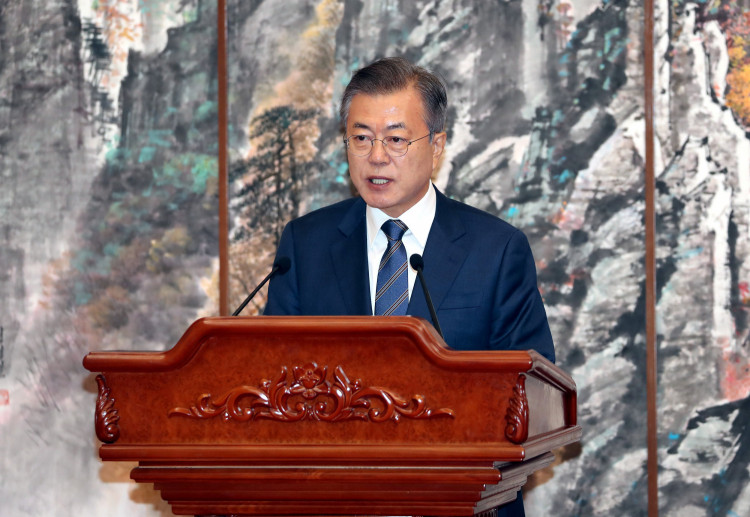Japan's Chief Cabinet Secretary Yoshihide Suga recently commented that the ties with South Korea are in a "severe state" signal that proves that worsening friction between its neighbors and U.S. lead groups.
Japan and South Korea are currently debating the ruling of South Korea's top court that states that two of the largest companies in Japan needs to pay the Koreans who were forced into labor during Japan's colonial rule from 1910 to 1945.
The ruling said that the South Korean government has the right to seize assets of Nippon Steel & Sumino Metal, two of the largest steel-making companies in Japan, over a forced labor case. In late December, lawyers that represent the South Korean plaintiffs requested the Daegu District Court to seize shares of Nippon Steel in a joint venture with Posco, a South Korean steel-maker, the request followed the ruling of the South Korean Supreme Court that obliged Nippon Steel to pay 400 million won to four South Koreans for forcing them to work during the colonial rule of Japan.
Prime Minister Shinzo Abe said on Monday that he plans to consider countermeasures to protect the steel making company's assets from the seizure of the South Korean courts. Suga told the reports during a conference in Tokyo on Monday that Japan and South Korea's relations are in a severe state. He called the seizure as a "regrettable" move.
Aside from the conflict over the metal-making companies, the two countries were recently argued over an incident on December wherein a South Korean naval vessel locked its fire-control radar onto a Japanese patrol aircraft. They are debating if who is wrong during the incident. South Korea claims that the Japanese plane flies in a provocative manner and they are asking Japan to apologize for the incident.
The Liberal Party lawmakers asked the assistance of the U.N. Security Council on Monday at a joint meeting of the LDP Policy Research Council's National Defense Division and the Research Commission on National Security on Monday. The members of the party called for tough action against South Korea. One of the lawmakers requested that the halt of talks between the defense authorities of the two nations to bring the issue to the U.N. Security Council.
South Korea also translated the contents of the video of the incident to gain support from the international community. It was released in Chinese, Russian, French, Spanish, Arabic, and Japanese.





